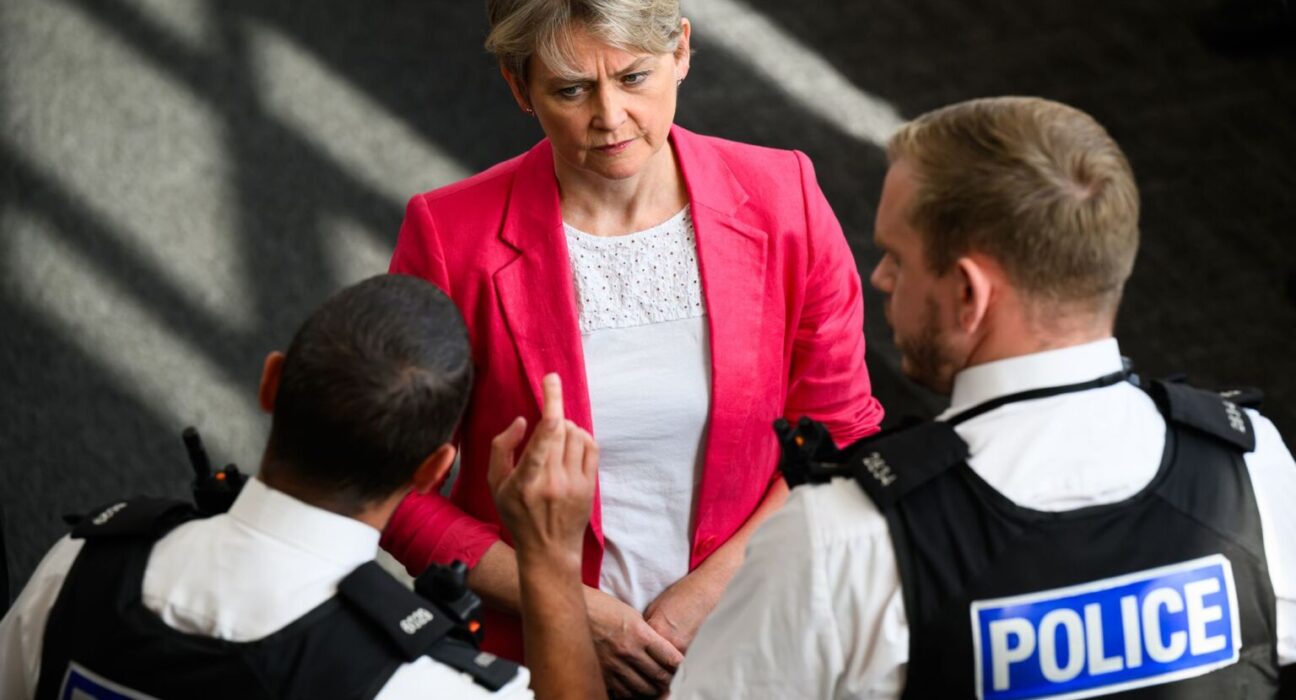Child sexual abuse is a pervasive issue affecting thousands of children each year. While the scale of this problem is staggering, there is often a reluctance to acknowledge its prevalence across all segments of society. In recent years, the narrative in the UK has been dominated by discussions around ‘grooming gangs,’ perpetuating a narrow and racialized focus on these crimes. Despite the severity of these offenses, every victim of child sexual abuse deserves support, justice, and a voice in shaping policies and practices.
Louise Raw, a historian and founder of Survivors against Fascism, sheds light on how child sexual exploitation (CSE) differs from other forms of abuse. She explains that CSE often involves perpetrators who are not known or related to the child, creating complexities in identifying and addressing these crimes. Perpetrators typically manipulate their victims through initial affection and gifts before coercing them into exploitative situations.
Raw highlights the problematic racialization of terms like ‘grooming gangs,’ which disproportionately target Asian and Muslim communities while overlooking similar abuses by individuals from other backgrounds. This biased labeling perpetuates harmful stereotypes and diverts attention from addressing systemic issues within all communities.
The far-right has seized upon the narrative surrounding grooming gangs to advance their anti-migrant and Islamophobic agendas successfully. By framing CSE as a cultural or religious issue specific to certain communities, they exploit public outrage for their political gain. Louise Raw emphasizes that this manipulation allows far-right groups to position themselves as protectors of women and children while ignoring internal issues within their own ranks.
Over the past decade, far-right messaging on grooming gangs has evolved significantly. Groups have increasingly linked Islam with paedophilia, capitalizing on fears about cultural ‘invasions’ threatening societal norms. High-profile figures like Tommy Robinson have played pivotal roles in amplifying these narratives through media platforms, garnering support by portraying themselves as truth-tellers fighting against suppression.
Despite numerous failings in responding to child sexual abuse across various sectors such as schools, churches, families, sports clubs—the focus remains disproportionately fixated on group-based CSE involving minority perpetrators by certain segments of society for political expediency.
The response from government authorities and civil society has been lackluster in challenging prevailing narratives around grooming gangs perpetuated by the far-right. The inclination towards racialized depictions overlooks critical aspects such as male victims’ experiences or white perpetrators’ accountability—underscoring systemic failures in confronting broader issues of misogyny and violence against children.
While recent calls for national inquiries into grooming gangs may signal some progress in addressing endemic challenges around child sexual exploitation—there remains skepticism about whether such initiatives will truly prioritize holistic solutions over sensationalized rhetoric perpetuated by extremist groups.
Experts caution that focusing solely on group-based CSE driven by ethnic biases undermines efforts to address broader forms of abuse prevalent across all demographics—a stance echoed by survivors who stress the importance of dismantling racist narratives hindering effective responses to child exploitation.
In conclusion, while grooming gangs have become a potent tool for advancing far-right agendas due to their emotive nature—it is imperative for stakeholders at all levels to reject divisive portrayals rooted in prejudice and instead advocate for comprehensive strategies that protect all vulnerable individuals irrespective of background or identity.

